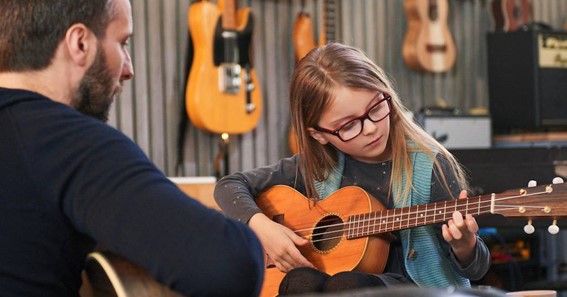There’s no age limit for music lessons, as most people believe music classes are for kids. Nowadays, adults enroll in music classes to learn about instrumental playing, voice lessons, production, songwriting, and music theory. Sometimes we are always busy and stuck to our daily schedules, but unwinding once in a while can help you refresh your mind. Some people prefer teaching themselves about music, but learning from a professional can help you sharpen your skills better, as they can teach you from the experiences they’ve had. Below is a list of reasons why music lessons are effective.
Convenience
One of the benefits of learning music is convenience. You can do it in person, or you can choose to take online singing classes, depending on your flexibility. Doing it online only requires a strong network connection, a quiet space to avoid distractions during the period, and the required platform where classes are hosted. You can travel worldwide and still take courses in the comfort of wherever you are as long as you plan the right time to pursue the classes with your tutor.
Building Confidence
Most people experience stage fright and anxiety even when around many people. It may seem like a tiny issue, but it’s a confidence issue that needs to be solved. The good thing about Forbes Music Company music is that it allows you to build your confidence in a way you drown in the music world and forget that you are performing in front of an audience.
With great tutors, Forbes Music promotes music’s passion, value, and entertainment through physical and virtual lessons that advance skills, build confidence, and encourage happiness. Our music class and group lessons enable students to enhance their love for music with good instructors who will inspire authenticity, passion, and a deeper understanding of music. Deals and discounts are available.
Development of Physical and Spatial-Temporal Skills
Learning instruments like percussion helps you develop physical skills like coordination. This is because instrument playing involves the training movement of arms, feet, and hands. Keyboard instruments like the piano also enhance coordination, since playing the instrument allows you to use your left and right hands. Research has also shown the link between music and spatial intelligence, as people are exposed to music theory, helping them visualize high graphic models easily.
Social Skills
Apart from one on one classes, there are lessons that you require you to team up with other members to assist in achieving tones and melodies. For instance, you are in a music class aiming to relax with some classical music, and someone else comes playing a sound that’s off and irritating. This is the problem when teamwork is not achieved within a group of potential musicians. The group leaders are usually urged to gather the team to achieve better results.
Everyone has to do their part to be inclusive of the team. This kind of thinking helps you as a team member to be conscious of how you relate with your teammates, and eventually, your social skills are improved once you master the skills while on the music team. You can apply them in daily life and how you interact with other individuals.
Introduction to Various Cultures
You can discover how music impacts other cultures by learning and playing various instruments. For example, the modern-day violin may have originated from Italy, but learning to play it can expose you to classical music popularized by Austrian and German musicians. Other instruments like double bass and piano can include various styles, like jazz and classical music that have roots in the American South.
Music lessons can lead you to various opportunities, including becoming a musician. You can revisit the different skills that the music teacher taught you and practice them to improve your chances of becoming better at music. You can record some sessions so you can practice them later. With that pace, your music career can turn out promising.







